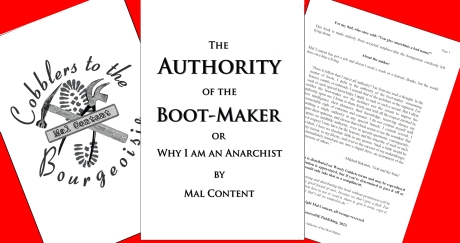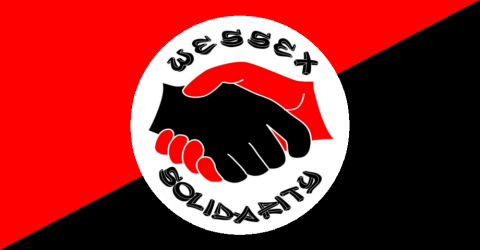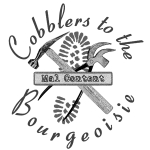On 25th November 1830, at the height of the Captain Swing uprising, labourer John Hardy was killed in action against yeomanry near his home at Tisbury in Wiltshire.
 Four hundred quarrymen and agricultural labourers had confronted the landowner and local M.P. John Benett at Pyt House to demand two shillings per day, the quarrymen were at that time on three and a half pence. Instead Benett read a royal proclamation against riot, then offered five hundred pounds to any worker who would inform on ten others.
Four hundred quarrymen and agricultural labourers had confronted the landowner and local M.P. John Benett at Pyt House to demand two shillings per day, the quarrymen were at that time on three and a half pence. Instead Benett read a royal proclamation against riot, then offered five hundred pounds to any worker who would inform on ten others.
The workers were unmoved and destroyed Benett’s threshing machines. They were engaged in woodland by a troop of yeoman cavalry that had pursued them from nearby Hindon. A pitched battle ensued as the workers fought back with hatchets, pickaxes, hammers, sticks and stones, knocking Benett unconscious. All day, running battles were fought across the Vale of Wylye and barricades erected on the Warminster road.
Hardy was shot dead and twenty-nine others captured. At Benett’s insistence the cavalry denied the injured prisoners water on the journey to Fisherton Gaol.
A witness wrote: “the blood did trickle out of the wagons the whole way to Salisbury …”
Background, and here we go again under capitalism:
At the turn of the 19th century the industrial revolution was spreading into agriculture and threshing machines abolished a quarter of the work in a few decades. Land enclosures proletarianised the peasantry and stole the commons, resources that had supported them since prehistory.
The ruling class wanted to have their cake and eat it, to create a ‘free market’ for agricultural labour whilst retaining the rigid social hierarchies inherited from feudalism and preventing economic migration. The Speenhamland system of poor relief, adopted in the 1790s, subsidised poverty wages from the parish rates according to family size and the price of bread.
Relief was tied to the parish of birth and set by the local magistrates. Paupers were obliged to take such work as was offered, and vagrancy laws stopped them crossing parish lines to look for better pay or the dwindling common land where they might live for free – “every man must have a master”. Landowners were thus guaranteed a captive pool of cheap labour to use as they saw fit, and to this indignity was added the further degradation of dependence on charity in return for servile conduct.
Steady employment gave way to hire by the day, or the hour, wages fell, and the bread ration was cut. There are tales of paupers being auctioned and harnessed to carts with bells around their necks. Tithes, rents and taxes rose, the bosses amassed great fortunes and ratepayers complained about the cost of poor relief. These included small farmers who didn’t like it either, when one laid off their hands, others would do likewise: “if I must pay his men, he shall pay mine”.
Captain Swing didn’t start as an insurrection against the status quo but was the response of necessity after a series of bad harvests threatened the rural proletariat with starvation. Just as modern unrest is often not specifically anti-capitalist but motivated by a sense of unfairness and injustice, they aspired to no more than providing for their families as in former times. “We don’t want any mischief, but we want that poor children when they go to bed should have a belly full of tatoes” Labourers initially trusted their masters would do right by them if reminded of their obligations: “ye have not done as ye ought”.
Sound familiar?
Their masters needed a shove however, and the practice of collective direct action leads to an appreciation of the strength of the Working Class and its fundamental antagonism to property and privilege. The logic of Swing was simple and infallible: they had been raised to understand they must work to live, they must earn wages or starve as undeserving paupers, therefore they would break the machines that took their work and demand a wage for doing so. The going rate was about forty shillings per machine. The gentry and clergy that lived so well at their expense could provide them with food and beer as they worked – or else.
Meanwhile in the cities radicals agitated for political reform and the Duke of Wellington’s tory government dug its heels in. Dissenters and ranters went around the country preaching everything from the second coming to full communism. There were revolutions on the continent and Kent villages flew tricolours or pirate flags as symbols of rebellion. A demonstration was called for the 9th November at the Guildhall to disrupt the inauguration of the Lord Mayor, to be attended by Wellington and the King. The authorities decided to cancel the day before.
Moving Westward from Kent Swing became a mass movement. The workers were joined by poachers and smugglers, formed alliances across parish and county borders abetted by agitators on horseback. Swing entered Wiltshire and Dorset from Hampshire, then on to Gloucestershire, and touched the industrial midlands where King Ludd reigned twenty years earlier; it reached Cornwall, Norfolk, Hereford and Carlisle. Jails were opened and prisoners released. Magistrates informed the Home Office that two-thirds of the rural population were involved in machine-breaking.
By the end of the year it had brought down Wellington’s government. It also achieved a general increase in wages and lowering of tithes and rents. Many farmers sympathised and voluntarily acceded to the workers’ demands if their neighbours would follow suit, refusing to be sworn in as yeomen or constables, and were invited to join in and take back their taxes. The mechanisation of agriculture was delayed, but that was never the root cause of the misery. The problem wasn’t the machine, but its use to produce wealth for the owner rather than food for the worker.
Swing challenged the hierarchy in two important ways: it assumed a parallel moral authority independent of church* and state, but above all it was mobile; the Working Class were not supposed to move around without permission or invitation.
* It’s instructive that a common form of passive protest at the time was for villagers to walk out of a sermon and smoke their pipes in the churchyard.
Repression followed, and not just against the convicted insurgents. The new poor law of 1834 abolished outdoor relief altogether and made it conditional on forced labour in the workhouse. Paupers, the elderly and infirm were made prisoners of Class War, subject to summary punishment. Wives and husbands were separated and the children of widows apt to be sold to factory owners or shipped to the colonies as indentured labourers. A new centralised law enforcement regime – the filth – was imported from Napoleonic France via occupied Ireland. In February 1832 the Metropolitan Police, formed in 1829 as a pilot project, inserted its first of many undercover cops, Sergeant Popay, into the National Political Union for a year as an agent provocateur. Within a couple of years the Met was being used as a mobile riot squad against the Chartists.
Such events are commonly portrayed as the birth pains of modernism but two hundred years later fuck all has changed. We’re still dependent on wages, still subject to displacement by machines. Technology is still reducing the value of human activity and creating poverty when it should be enhancing our abilities and freeing us for more beneficial occupations. We’re still governed by received values that many passively endorse but few understand where they came from or who they serve.
Capitalism cannot solve these problems, but we can. We ought to celebrate our martyrs:
John Hardy we’re proud of you!
– Mal Content.
Sources and further reading:
http://archiver.rootsweb.ancestry.com/th/read/ENG-WILTSHIRE/2004-11/1099392025
‘Captain Swing’ – Hobsbawm and Rude
‘Tolpuddle And Swing, The Flea And The Elephant’ – Dr. Roger Ball.
‘The Labourers’ Revolt, correspondence, John Benett M.P and others.’ – National Archives.
November 24, 2017
Categories: Anarchist, Captain Swing, Luddites, Tolpuddle, Wiltshire . Tags: Class War, John Hardy, tory, workers . Author: wessexsolidarity . Comments: 1 Comment












